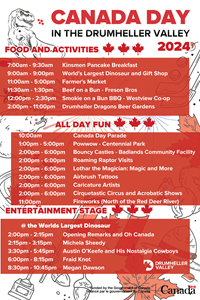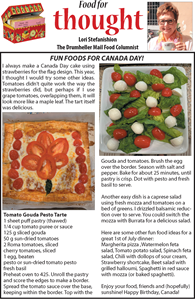An interesting study in the Journal of Consumer Research says yes - the way in which another person heaps (or doesn't heap) up their plate can affect the eating habits of those eating with them.
In this study from the University of British Columbia, a study participant (who did not know the intent of the study, and thought they were participating...
An interesting study in the Journal of Consumer Research says yes - the way in which another person heaps (or doesn't heap) up their plate can affect the eating habits of those eating with them.
In this study from the University of British Columbia, a study participant (who did not know the intent of the study, and thought they were participating in a study of movie viewing) was paired up with a researcher who was thin on one visit, and disguised wearing a 'fat suit' on a second visit. Each pair was offered a snack of granola or M&Ms.
In the first round of study, the thin researcher went first, and took a big helping of the snack. Participants were found to heap their own plates in response, taking even more food than they did when they were in the room alone. When the researcher dressed up in a fat suit and took a large helping, the study volunteers took a smaller amount of food, though they still took more than when they were alone.
In the second round of study, the thin researcher took a tiny amount of food; the result was that study volunteers cut down on their own portions. When the obese researcher took only a little food, study participants indulged a little more.
So what is the psychology behind these findings?
1. When we see thin people taking large helpings, it may provide some (false) reassurance that it is OK to heap up too. The thinking is that if they can do it and stay thin, then it must be ok. What is not seen, however, is what that thin person is eating for the rest of the day, nor what they are doing for physical activity to burn off the excess calories.
2. When we see an obese person taking a large helping, an association is drawn between that person's obesity and their excess caloric intake, which may motivate others around them to scale back their own eating, so as not to gain weight with extra calories themselves.
3. When a thin person takes a small helping, an association is again drawn between that person's appropriate weight and appropriate intake, encouraging others to do the same. When the overweight person takes a small helping, however, the perception is that that person must be on a diet, and if someone around them is not on a diet themselves, the subconscious conclusion may be that it is OK to take a little more on their own plates.
The solution? Don't let other people's eating habits influence your own; remember that when you are meeting someone and eating together over a one hour lunch, that is only a snapshot, and not necessarily representative of what that person is doing or eating for the rest of the day. Stay true to your goals, and what you know you need to do in order to accomplish them!
Dr. Sue © 2011 www.drsue.ca drsuetalks@gmail.com




























